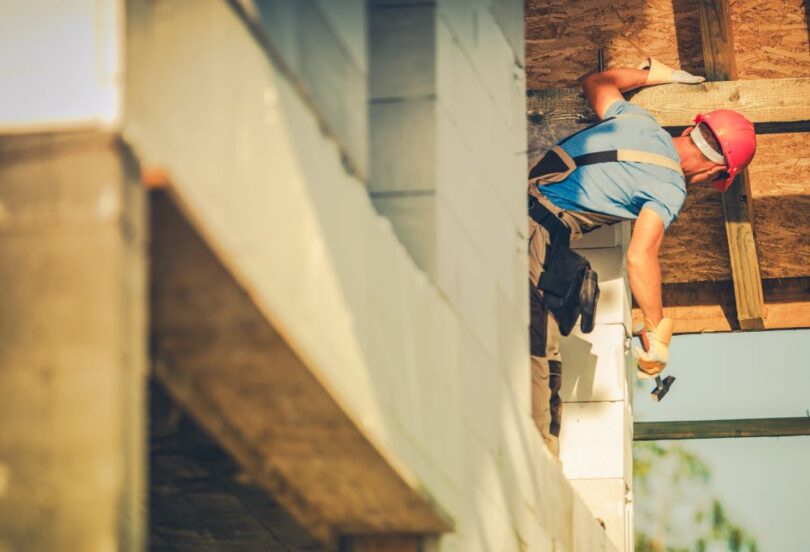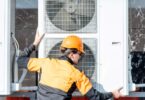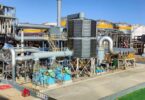A first-of-its-kind good practice guide designed to help manage climate change geo-related impacts and liabilities for land development is being created by CIRIA, the Construction Industry Research and Information Association.
CIRIA has appointed geotechnical and geoenvironmental specialists RSK Geosciences to prepare the guide, who will draw on the wider skills of RSK Group companies Nature Positive, ADAS Climate and Sustainability and the Water Research Centre (WRc). The integrated RSK approach will contribute to comprehensive good practice guidance, building on RSK’s multi-sector knowledge across climate change, adaptation, resilience and mitigation.
CIRIA Senior Research Manager and Sustainable Land Reuse Programme Lead Joanne Kwan said: “There is no doubt that our climate is changing at a speed that is affecting our built environment. Extreme weather events, in particular, may necessitate modifications to design to mitigate impact on the long-term suitability and function of the development of both brownfield and greenfield sites. Getting it wrong could be costly.
“CIRIA’s new project 3266, ‘A good practice guide for managing climate change geo impacts and liabilities for land developments’, will produce the first UK comprehensive guide to manage climate change risk in land development projects in a balanced and sustainable manner. The guidance also aims to reduce delays in the programme and additional costs in land development projects caused by changing climate and extreme weather events.”
As an independent and not-for-profit body that exists to drive collaboration across the built environment and construction sectors, CIRIA is supported by a range of funders, including for this project GB Card and Partners, Heathrow Airport, John F Hunt, Mott Macdonald, Natural Resources Wales, Tesco and Wales & West Utilities.
Heathrow Airport Master Planning Manager Michael Murphy said: “Climate change is impacting everyone. That’s why we chose to support this upcoming guidance. It equips the construction sector with the tools to balance sustainability and project efficiency. The need for the assessment and management of risk from climate change and extreme weather events are becoming increasingly clear. We must protect our newly constructed and legacy infrastructure from the potentially damaging effects of the increasingly visible changing climate effects.
“This is clearly needed and this document with help drive good practice guidance to the land development sector driven by government policy including the National Planning Policy Framework, Environment Agency guidance, and Law Society guidance covering the entirety of land development and transactional processes. The projected adverse effects of climate change and extreme weather events on geo-environmental and geotechnical hazards and the potential for harm to human health, our environment, and buildings and infrastructure needs to be understood.
“We are therefore supporting the development of this good practice guidance to provide a framework by which stakeholders across the land development sector can understand the geo-related risks from climate change and extreme weather events, ensure that harm is mitigated where possible, and that development adaptation remains risk-based and proportionate.”
RSK Geosciences Director Tom Henman said: “This important project builds on RSK’s existing expertise and activity in this area, with us having authored a report in 2023 for National House Building Council (NHBC) on climate change risks to building foundations and led the preparation of award-winning Society of Brownfield Risk Assessment (SoBRA) guidance on assessing climate change and contamination risks. We are now bringing our combined geoenvironmental and geotechnical knowledge to benefit this project and the wider construction sector.”
The first stage of the project is a fact-finding mission to research and distil current industry knowledge that informs construction and asset management practices to assess and mitigate geo-related risks from climate change and extreme weather events. RSK’s team will be researching relevant literature with a view to understanding where knowledge gaps exist. It is also seeking feedback from a wide range of sectors through a soon-to-be launched industry survey, which aims to inform understanding on awareness/concern and current practice for assessing and mitigating such risks in the pre-construction, construction, operational and transaction phases of land development. This can be accessed here.
In the second phase, the RSK Geosciences focus will shift to developing a framework for the assessment and management of geo-related climate change risks over all phases in the development life cycle. It is hoped that the good practice guidance will be published in late 2025 or early 2026.







